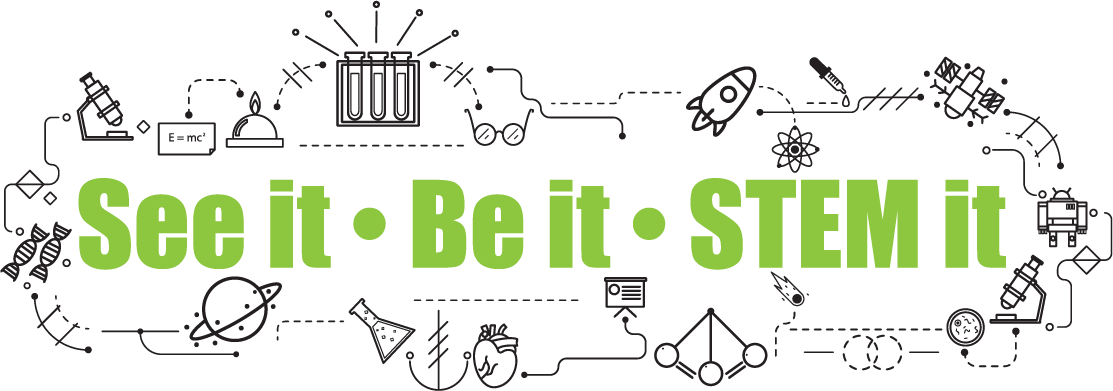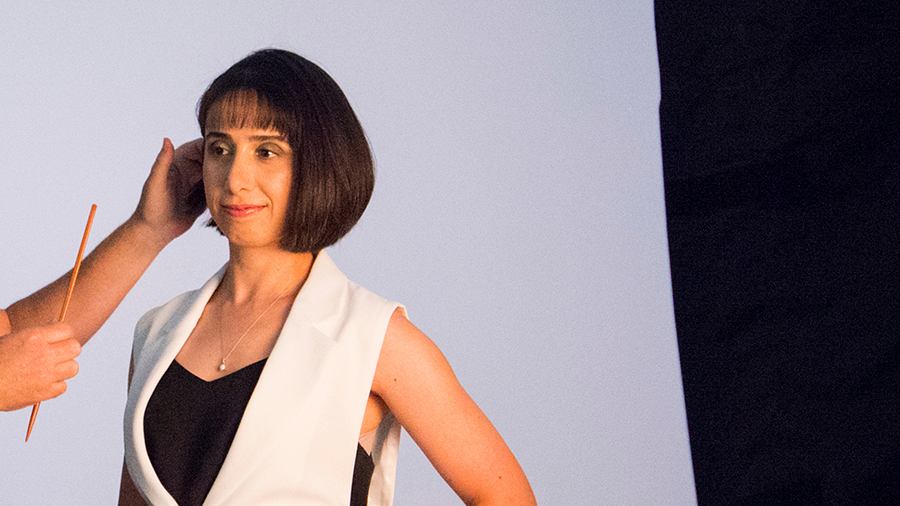Meet Atena Keshavarzian
Atena Keshavarzian graduated with a Bachelor of Electrical Engineering, and a Masters of Electrical & Biomedical Engineering. She currently works as a Manager in Technology Consulting at PwC. In her free time, Atena enjoys camping, hiking, observing and spending time in nature, reading, watching documentaries, baking, biking, rock climbing and yoga.
Manager in Consulting, PwC Canada
Master of Electrical & Biomedical Engineering, University of Toronto
Bachelor of Electrical Engineering, University of Tehran
When did your love of STEM begin?
STEM is a broad word; basically, referring to the worlds of science, technology, engineering and mathematics. Frankly, these words summarize my interests and perspectives for as long as I can remember. Growing up, my mindset was that to be successful in any field, I need to have a strong foundation in STEM. Back then, I did not know what "STEM" was, but what I did know was that math and physics always fascinated me. More specifically, how they apply to our day to day lives: how physics is at the heart of simply anything we or other creatures do, use and observe from walking, opening our eyes, to how our heart pumps blood through our body, and more complex concepts such as how the evolution of physics helped us invent the Magnetic Resonance Imaging (MRI) in a very unique way allowing us to see right through the body and the human brain, or how a plane's engine and wings work together to move the plane forward at high speed and upward holding it in the sky.
I was also very lucky to have been exposed to people who were in different fields of STEM around me - my family, friends, teachers and wonderful people I looked up to. Observing them and the impact they had on the world around them, were also huge factors why I made the decisions that I made along the way.
What did you love most about study in your field of STEM?
There are so many amazing parts that I don't even know where to begin with. I'd say it’s unique for every job, but there are some commonalities across different careers in STEM.
The best part to me is the fact that we always need to stay up to date in different fields and the learning should never stop. Also, it is the diversity: diversity of problems we face and get to solve, diversity of impacts we make, diversity of paths we could take, diversity of people we encounter and many more. For example, you might find yourself building a system that tracks and predicts how many patients visit a hospital and using that help manage how many doctors, nurses and other resources are needed at the hospital each hour/day. Or you may find yourself doing research on how a certain drug affects patients in different ages, or how robotic technologies could help farmers monitor and manage their fields more efficiently, so they no longer have to apply water or fertilizers across entire fields and instead use the quantities required.
In my case, I currently work as a technology consultant with different organizations to ensure they understand how technology affects them, how they can better use it, boiling complex ideas down to clear and practical choices, how to implement them, what the impacts and outcomes are, how to tackle changes they will be facing, etc. Now the organizations I work with could be across different sectors: utilities (e.g. power plants, electricity providers), health care (e.g. hospitals), education (e.g. schools, school boards), government (e.g. cities, federal government), private companies, etc. Along the way, I get to work with people who may or may not think the way I do and the great thing about it is that we get to make better impacts together in small or big teams full of wonderful minded individuals.
Your education in STEM can take you to many places and directions you never thought of. There are so many cool things you can do so just work hard and keep having an open mind along the way.
What advice would you give to young women considering a career in STEM?
These are some that come to mind. It doesn't mean I am good at them either. I am also on a journey like all of us :)
• Be open to people who have different ideas, thoughts or opinions than yours. Support others and appreciate their contributions, their past and their future
• Be curious and ask questions. Don't lose your curiosity as you grow and evolve. Learning should never end. Not after you graduate, or land on your dream job, or change roles, etc. STEM topics are the backbone of our world. We need to always be learning and become as good at them as we possibly can
• Talk about your interests with people around you and read on different topics as much as you can. The right people can help you see your full potentials beyond your normal horizons and support you in your decision-making
• Always keep in mind that we are all different and that you need to pursue what is inherently fascinating to you. If a field or a career path interests you, just go for it! Don't wait for people to tell you what to do or if you're “good enough” for it. You are you, and you are the only person who ultimately knows what it is deep in your heart
• Keep in mind that we are living in a world of change. The fact that something has been done in one particular way for years doesn't mean it will or has to continue that way. So be confident, learn and not be afraid of changing things or adapting to changes as you move forward
• Be open to new opportunities. Trust your journey. You never know where life takes you
• In the world we live in, it could be hard to stick to decisions at times as there are many things that could pull us in different ways. Make sure you learn how to make decisions and prioritize to keep yourself on track. Stick with your decisions and don't give up. Love each step and define success throughout the journey because this is your life - don't let the end goals be your only definition of success
• And of course, be ready to sometimes deal with unwanted circumstances or challenges. Things may not go as planned and such is life. Do not let anything stop you or change the way you set your goals. The world is just the way we see it. Everything is in our minds and the way we perceive the world. So, focus and keep going
• Reach out to your network and others when you need help. Don't ever be afraid to ask for help
• Trust yourself and your abilities. Enjoy the ride!
“This was taken during my first year of elementary school in my home country, Iran. I loved (and still love) taking pictures near flowers and trees!”
Atena Keshavarzian





